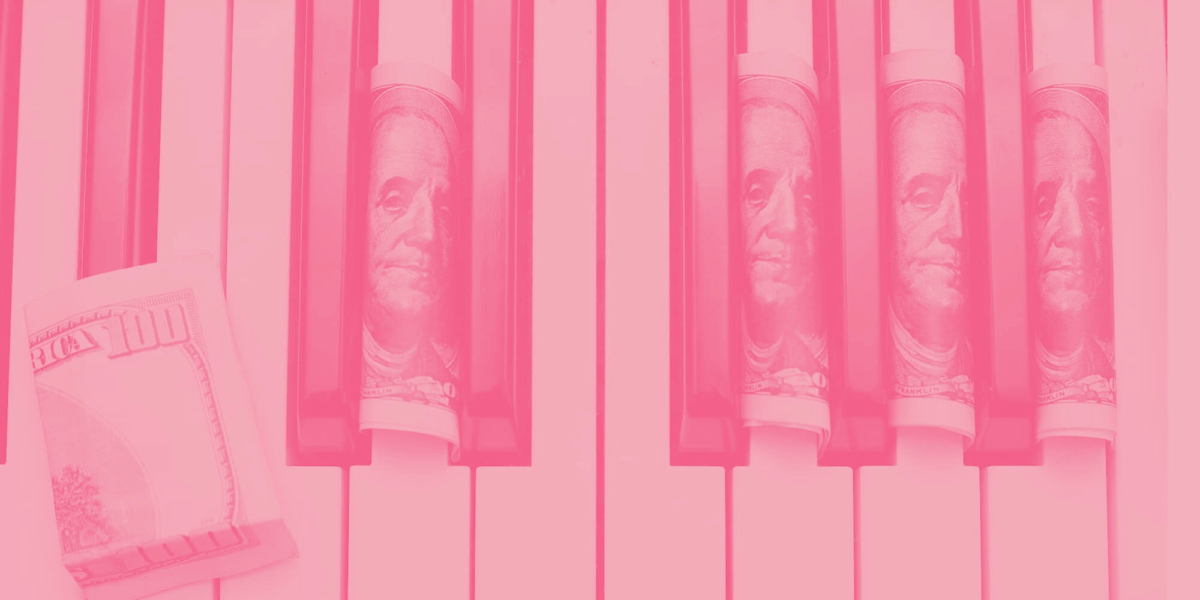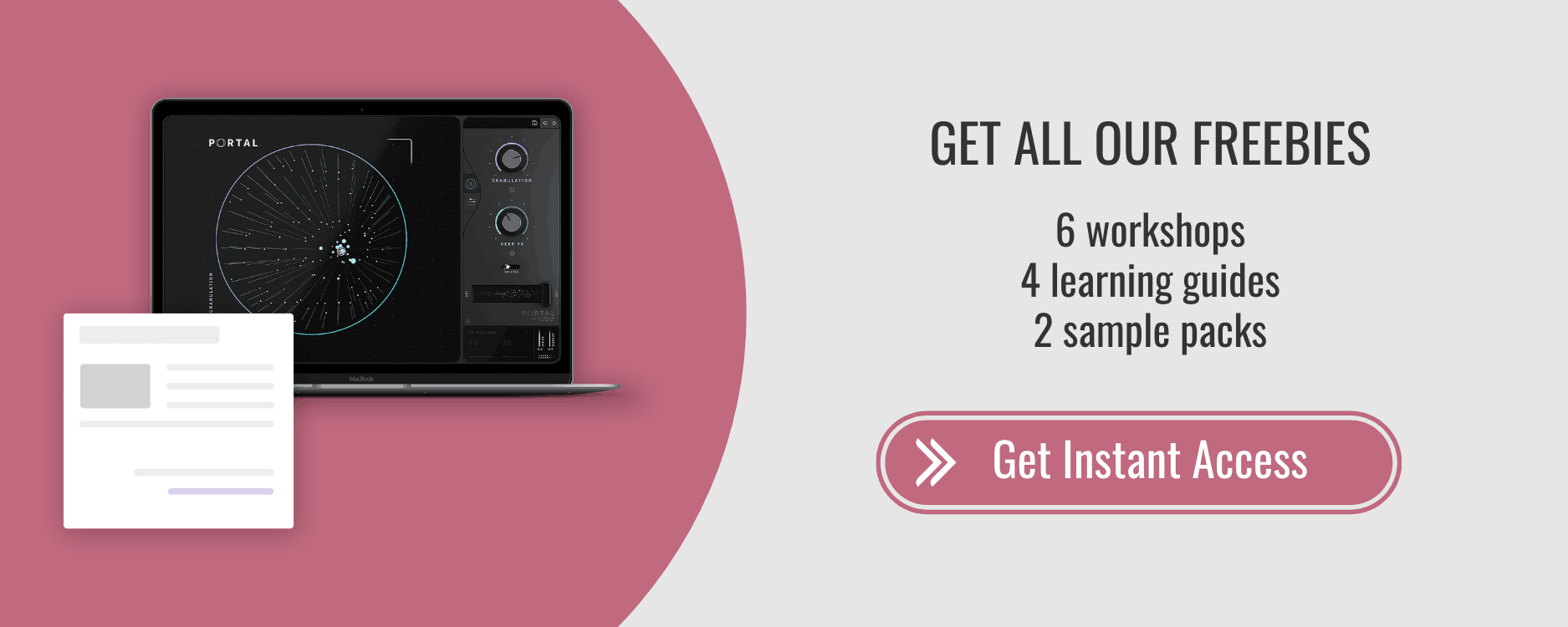Making Money In Music: How Artists Can Create Multiple Income Streams
“I’m not a businessman, I’m a business, man!”
— Jay-Z
Let’s face it, making money in music is important. Regardless of where your passions lie, making a living is a necessity. You can’t expect to make it very far in life if you have no way of financially navigating the world.
In the fantastic documentary ‘Daft Punk Unchained’, the duo talks about how they were able to “play the long game”.
They were never hungry, homeless artists. Instead, they had a foundation for their income which allowed their mental capacity to focus on being creative.
Making Money In Music is Not THAT Hard...
There I said it. With some persistence, patience, drive, and a little bit of talent… you can easily find yourself paying the bills by making money in music.
Don’t get me wrong, making money in music isn’t just something you’ll be able to pull off overnight. Quite frankly, it takes a lot of hard work and more often than not, it takes multiple income streams.
Did you know that the average millionaire has at least 7 income streams? In fact, if I had to guess, the number of revenue streams in music might even be higher.
Below are some of the strategies that have helped my business make millions of dollars in the music industry. This is how I pay rent, feed myself, go on vacation, donate to charity, and fuel my creativity.
Remember, not every person is going to be able to make all of these work for them. This is about casting a wide net and hoping your skills in a few categories can give you enough money to be comfortable.

1. Becoming a Touring Artist
When it comes to making money in music, I would be willing to bet the vast majority of our readers want to become a touring artist.
Becoming a touring artist is perhaps the most sought after gig in the music industry.
This is due to its prevalent visibility, high social status and extra large paychecks.
Besides, who wouldn’t want to be a touring artist, right? Traveling the world, playing in front of thousands of fans, meeting interesting people, and of course, raking in the big bucks.
What Makes This Difficult?
For many, becoming a touring artist is a dream come true. But the reality of touring is not what it looks like on Instagram. On one particular West Coast tour I was on a while back, I remember the stark contrast between Tiesto’s Instagram and mine.
Tiesto had a private jet. I flew coach (with a middle seat, no less). He had professional drivers and tour managers. I had to rent an economy car (a Nissan candy-apple red Cube, no less) and drive myself.
But the best contrast? Tiesto woke up in a plush, ocean-front LA mansion while I woke up on a beat up couch of a friend-of-friend's apartment, surrounded by cats. And yes, I’m allergic, and yes, I had back pain for days.
But beyond the difficulties and stresses of touring on a budget, one of the most misleading aspects of touring is this: making real money on a tour is only possible if you have a fan base that buys tickets.
Of course, if you’ve built a massive fan-base, consistently release hit singles and garner millions (perhaps billions) of streams, touring becomes a lot easier and more manageable, likely because you’ll have secured a booking agent.
Securing a booking agent is usually the biggest hurdle between touring and non-touring artists. But of course, even a booking agent won’t guarantee that you’ll be able to make a living off your tours.
What You Need to Know
Have you heard of the ‘1000 True Fans’ theory by Kevin Kelly? Basically, the gist is this: if you can create 1,000 super fans, you can make a living as an artist.
Fundamentally, this makes sense — if your fans spend $100 dollars on you every year, you only need 1,000 fans to generate $100,000 in revenue. Of course, getting these superfans is easier said than done.
That said, even some of the largest shows in the world end up costing the artists money. Fun fact: it’s almost impossible to make money off of a show at Madison Square Garden unless you sell it out multiple nights.
When it comes to making money in music as a touring artist, the most important distinction you can make is understanding the difference between ‘soft’ and ‘hard’ tickets.
The ‘Soft ticket’ market consists of venues such as bars, some smaller clubs, casinos and fairs, where crowds will gather regardless of the act. Performers here can make decent guaranteed money without having to count on people paying for a ticket that allows entrance into a concert and nothing else.
A ‘hard ticket’ venue is the opposite. This is when people pay money to see a concert at a larger club, stadium, amphitheater or arena. This is why you have to be a certain size artist to even entertain the idea of playing these types of shows.
So by all means, DJ to your heart's content in the “soft ticket” world… and even try to open for some bigger “hard ticket” events. Just realize that this is a process that takes time, and if it’s the only idea in your head about how to make money in music, you’re in for a rough journey.

2. Producing Music for Other Artists
Most of us aren’t releasing songs that accumulate hundreds of millions of streams.
And because of that fact, you can’t expect to make a full living off of streams alone.
You can actually use this handy royalty payout calculator to see exactly what we are talking about.
And not to be a debbie downer, but you usually don’t own 100% of your own songs if you’re getting them onto streaming platforms like Spotify and Apple Music.
So what’s a viable solution? Well, producing music for other artists requires virtually no effort in marketing. Plus, you can charge upfront production fees for your time spent AND collect backend payouts for any royalties those songs bring in.
What Makes This Difficult?
Of course, in order to produce music for other artists you have to get people to want to work with you, and this can be challenging. Try submitting music to online track catalogs (more on this later) or building your own website/page to house your music for sale.
This was exactly how Lil Nas X's "Old Town Road" with YoungKio was made. The 19-year-old YoungKio sold him his beat off of his personal website and it turned into one of the most streamed songs of the decade.
What You Need to Know
At the end of the day, producing music for other artists is all about building relationships.
Once you start down this road, every successful collaboration will lead to more work. Eventually, with enough work you’ll be able to sign publishing deals which can create some serious revenue.
If you can’t get work initially, it’s ok to start by working for free as you can always offer to split royalties. Once you have a few semi successful songs, artists will be vying for your abilities and will offer substantial rates.

3. Syncing Your Music
Syncing your music is a fancy way of saying that you will get paid when your music is placed in another work or project. This usually refers to the world of ads, television, and film, but can be expanded to anywhere your music is being played and royalties are being collected.
Getting into the sync space has a lot to do with publishing. I don’t want to spend too much time talking about this because frankly, it’s boring and difficult to talk about. However, some basic knowledge can go a long way for understanding the rest of this section, so to quote Tunecore,
“Music publishing is really all about songwriters and copyrights. When music is used commercially (whether sold, licensed, or publicly performed), the songwriter and copyright owner is owed royalties. A music publishing company can offer multiple services for songwriters. As a ‘publishing administrator’, they administer the copyright – protecting the use of songs as well as collecting royalties owed from use. On the creative side, some music publishers focus on the use and exploitation of the copyrights they administer by securing opportunities in the form of ‘sync licenses’ for film, TV, ads, video games, etc.”
Remember how I mentioned getting a publishing deals earlier? This is exactly that.
Once you’ve garnered enough attention for making music (for yourself and others), you can work with publishing companies to help create sync opportunities for you. They can help establish relationships with artists and even give you large advances.
What Makes This Difficult?
If you’re going to go the route of syncing your music, quite frankly, you’ll need to make a TON of music. This can be challenging for the average musician, especially when you’re not finishing music.
This is why, in The Hyperbits Masterclass, we start the entire course with strategies and techniques to arm you with the ability to do the single most important thing you could possibly do: finish music.
The sync and publishing world really relies on quantity over quality. This doesn’t mean your music can be bad… it just means that you need to get efficient.
Most selections are actually based on mood and whether or not the track ‘works’ for the placement. They don’t care so much about mix quality or fullness in the drops. Half the time the song is played behind people talking anyway…
What You Need to Know
If you’re just starting out, securing a publishing deal is most likely a bit far away for many of you reading this. That said, there is plenty you can do in the meantime to work towards this goal.
Services like Musicbed allow you to submit music to their library for sync opportunities to get you paid. There are lots of services like this online, so doing a little research into online sync music libraries (or track catalogs) goes a long way.
Just a side note here…remember how we mentioned ‘backend’ earlier? Well whenever you make music that is released in some way commercially you’ll be able to collect royalties from the publishing for that song.
Because royalty payments are not instant, there are also “sync fees” which are bulk payments sent out in advance from whoever is using the music to the artist involved. For larger syncs, these payments can sometimes be worth hundreds of thousands of dollars. You could even get your music featured in a paid TV or social media ad (like in these TikTok ad examples).
Pretty cool, right?
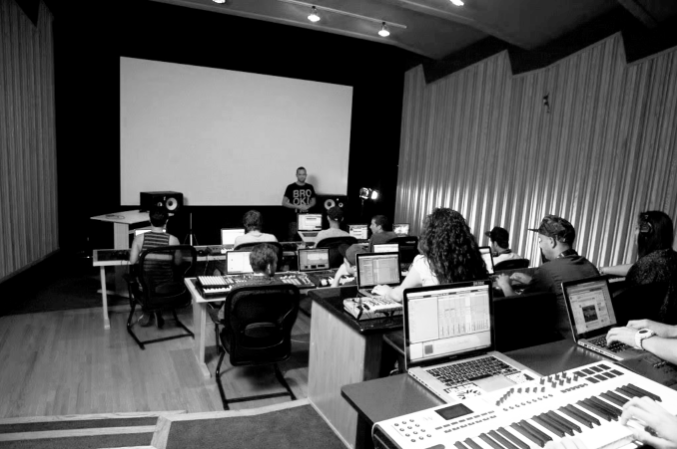
4. Music Education
Music education has exploded online in the last 10 years. Almost everywhere you turn (websites, blogs, YouTube, social media, etc.) there are classes, tutorials, and articles helping producers make money in music.
Why not be a part of it?
That said, don’t get me wrong — there’s a lot of music education out there that simply isn’t up to par. This is why we’ve created a massive production database inside Hyperbits Masterclass that features all of our favorite and most impactful free tutorials from the internet.
What Makes This Difficult?
The current threshold for providing music education services and content is actually fairly low. Because of this, you’ll have a lot of competition.
You’ll want to make sure your skills are up to par before you dive into the field of music education. Teaching music production not only helps to continuously improve your skills, but also helps others develop their passions and see success.
That sounds like a major win in my book!
The world of music education also gives you the ability to create an online business. There are really no rules here — whether it’s a YouTube channel for music tutorials, or a website that offers courses or services, you can excel in it.
You could even create a physical location based school to teach mixing and mastering just like they do with Icon Collective or Pyramind. Of course, a physical location comes with its own difficulties and challenges and would most likely require a lot of capital to start.
What You Need to Know
At the end of the day, creating a music education business that generates real revenue is not easy, but anyone could theoretically work their ass off and get it done.
If you want to be successful in the music education space, I’d recommend doing something that other producers and teachers aren’t doing.
For me, my original niche was to target intermediate to advanced music producers who wanted a complete system from the ground up that would allow them to conquer advanced music production.
For an in-depth guide on all of the challenges I continue to face, check out these 20 Lessons I’ve Learned from Running an Online Music Business.
At the end of the day, it’s important to be original in the music education space, just like it’s important to be original when making music.
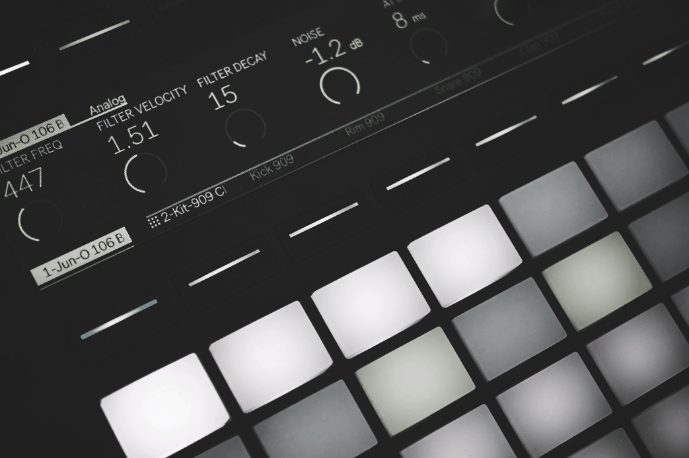
5. Music Technology
Want to make real money in music? Well, look no further than the intersection between music and technology.
Computers and music go together like peanut butter and jelly.
Sure, learning how to code can be quite challenging initially, but at the end of the day, coders are highly in demand, in almost every industry. Why not pair your ability to code with the music industry?
This can mean making your own plugins for producers to buy, creating games that help producers get better at making music or producing, or even creating algorithms that can detect what song is playing (yes I’m referring to Shazam which was sold to Apple for $400 million dollars).
What Makes This Difficult?
When it comes to making money in music technology, the major hurdle you’ll face is traction. The best way to make a splash in this space is to solve problems.
Look to your own workflows and daily life — if you can solve a problem for yourself, you’ll most likely solve a problem for others as well.
A great music technology company we know and love is SoundGym — an online platform that essentially gamified ear-training, which in turn helps mixing and mastering engineers get better at identifying frequencies, learning the stereo image and hearing the subtleties of compression.
This is a perfect example of a team of music lovers working together to create a powerful tool in the music technology space.
What You Need to Know
At the end of the day, every company starts small. If you have an idea inside of the music technology landscape, we really do recommend running with it.
Music and computers are the present and future of this industry, and who knows what you’re capable of building.
Avoid over committing at first — there is absolutely no need to secure funding to create an MVP of your idea (minimal viable product). In fact, before you search for funding, we’d recommend finding partners and collaborators — people who can help turn your idea into something real.
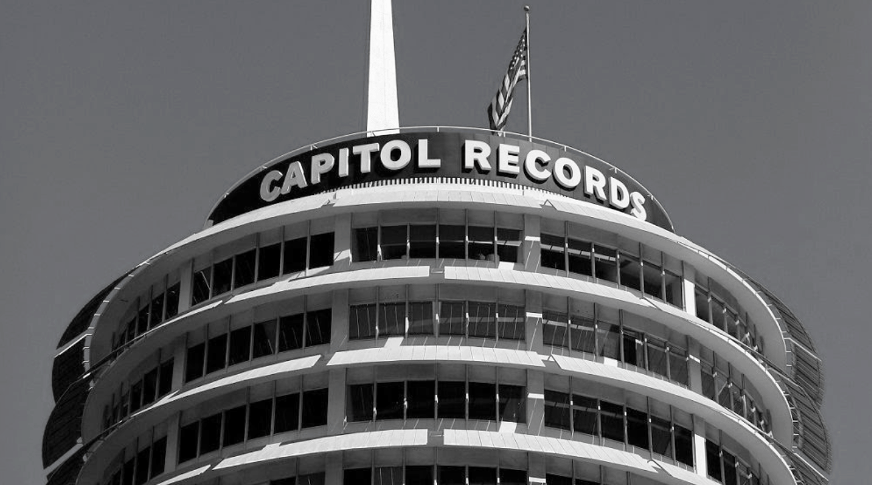
6. Music Business
Perhaps it makes sense — but the number of opportunities to make money in the music business is ample. Whether you are or want to become a manager, lawyer, agent, A&R, label head, publisher or distributor, the list goes on and on.
In fact, there is probably more money being made from the non-musical side of things than from the actual music itself.
What Makes This Difficult?
For most people, becoming an artist is the most common goal. But the truth is, some of us just aren’t meant to become artists.
I’m not trying to diminish your dreams here… let me make that very clear. But have you ever considered entering a different side to the music business world to help you work closely to something you love?
There are actually a lot of cool jobs that exist (that pay very well, in fact).
Now this isn’t to say you NEED a job in the industry to make it as an artist. It just helps. Believe me, there are plenty other reasons that cause music producers and musicians to fail.
Think of your other skills. What else can you bring to the table? Just remember that at some point you have to do a little self-realization and figure out what you’re good at and how you can use it to make money in music.
What You Need to Know
Regardless of what job in the music industry you’re looking for, it doesn’t hurt to start early. Many friends I know that work in the industry started small with blogs, internships and basic networking.
Taking initiative goes a long way. Ziggy Chareton, the Senior VP of Island Records once told me a story about hiring an intern simply based on the applicant's initiative and energy alone. That applicant went on to manage successful artists and even work as a director of online marketing for Universal.
The point here is this: if you want a job in the music industry it is there for the taking. Show some initiative, prove that you’re a self-starter, and you’ll be on your way in no time.
Final Thoughts
Making money in music isn’t only possible, it’s probable. The problem is that the majority of people experience a few setbacks and right off the industry entirely.
Show some perseverance. Be patient. If this was easy, everyone would do it!
Overall, we talked about a lot of different ways to explore the process of making money in music. If I had to offer one last piece of advice, it would be the following…
Figure out who you are. The happiest people work in jobs that are an extension of who they already are.
One of my favorite quotes I’ve ever come across is this: “When you combine two or more fields that you love, you can be average at both but be the best in the world at their intersection.” — Ramit Sethi
Having multiple streams of income is not only the most efficient way to make money in music, but it is the best way for you to find and cultivate your niche.
Making money in music is a necessity, and it’s also a way to have more stability in your life. Stability can help to fuel your creative passions.
And for a lot of us, our creative passions are what we live for.
Don’t give up when this gets hard. Don’t stop fighting.
I promise you that making money in music can lie just around the corner.



